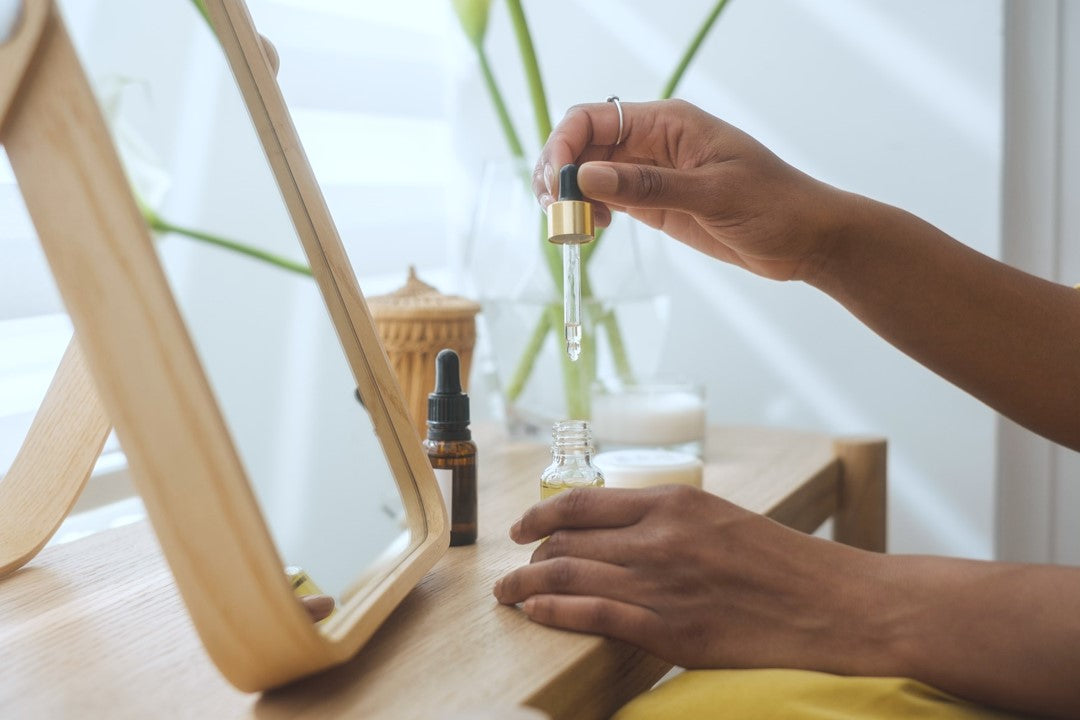It's no secret that menopause can cause many changes to occur in woman's body, but what’s not as well known is that the shift in hormones can affect your hair and scalp health as well. From major hair changes, such as hair loss to thinning hair, or noticeable differences in texture — any of these symptoms that occur can become distressing. And for many women, hair is not "just hair," but it’s part of one's self-image, identity, and self-confidence.
How and Why Does Hair Change Before and During Menopause?
Although not every woman will notice differences in their hair during menopause, many of the changes experienced are due to fluctuating hormone levels, which are common leading up to and during menopause. Hair loss and thinning hair are also complex issues that can be attributed to various other health issues1 so, it's important to rule those out with your healthcare provider first before determining your treatment plan. In general, however, menopause-related hair changes are most often linked to estrogen decline and shifts in androgen hormone levels.
During menopause, a decline in estrogen levels can trigger hair thinning. Because your estrogen levels dictate your hair fullness and density, declining estrogen paired with higher androgen levels can affect your hair, as mentioned above. Your androgen hormones (also known as male hormones – i.e. testosterone) which decline during menopause,2 can also be the cause of thinning or bald spots, in some women.3
What Are Hair Serums?
Hair serums are rising in popularity in the beauty industry and many women are adopting them into their beauty routines. But why? Just as many women use serums in their daily skincare routine, so too are hair serums becoming a staple in hair care routines.
There are several different types of hair serums available, and many are targeted to specific needs – for scalp health or hair growth, for example. Unlike hair styling products, most serums are meant to be used directly on the scalp. Some serums, however, are designed to be used throughout the hair (think root to tip), and not on the scalp, and can be applied like a cream or other styling product. So, be sure to check your product labels for specific use indications on any hair serums you try.
Again, every hair serum's use or indication is specific to each individual product and its ingredients, but in general, serums contain active ingredients that you want absorbed directly into your scalp. You've probably heard about active ingredients in skincare products, such as biotin or vitamin c, and they are used in the same way to support your scalp health — you can think of actives in hair serums as skincare for your scalp.
Hair oils, on the other hand, are not the same as serums. Oils are typically meant for use on the ends or mid-shaft of the hair since they are heavier and can weigh the hair down. Each hair oil or serum product is different, so remember to consult the product directions and also consider your own unique hair texture and needs to determine the best product for you.
Is There Any Scientific Evidence Suggesting That Hair Serums Work?
Specific ingredients and nutrients have been shown by science to help promote hair growth and improve hair texture. Although not all ingredients that you find in every hair serum are clinically proven to work, in general, ingredients shown to be effective are minoxidil (found in Rogaine)3, in addition to products that are silicone-based, or contain biotin, vitamin E, argan oil or almond oil.4
Resources
- https://www.aad.org/public/diseases/hair-loss/causes/18-causes
- https://www.menopause.org/for-women/sexual-health-menopause-online/changes-at-midlife/changes-in-hormone-levels
- https://my.clevelandclinic.org/health/diseases/16921-hair-loss-in-women
- https://www.healthline.com/health/drugs/minoxidil-oral-tablet
- https://www.vogue.in/beauty/content/how-to-choose-a-hair-serum-based-on-your-hair-concerns











